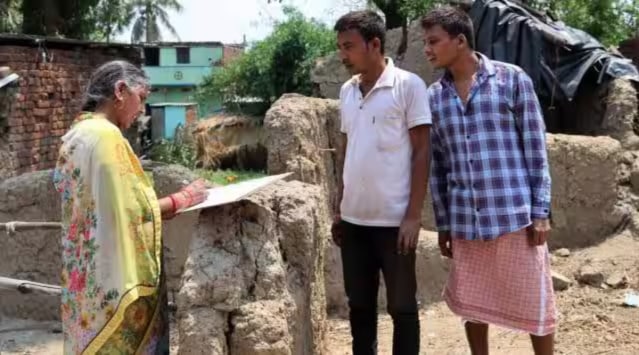PATNA HIGH Court on Tuesday allowed the Bihar government to go ahead with its caste survey, taking into account its assurance on data protection in the Assembly.
On May 4, the court had stayed the caste survey through an interim order, saying that the state government was not competent to conduct the caste survey.

On Tuesday, a division bench of Chief Justice K Vinod Chandran and Justice Partha Sarthy said in their order: “We find the action of the State to be perfectly valid, initiated with due competence, with the legitimate aim of providing development with justice.”
Story continues below this ad
The court said that as the survey does not involve any coercion to divulge details — as announced in the Assembly — it does not violate “the rights of privacy of the individual, especially since it is in furtherance of a ‘compelling public interest’ which in effect is the ‘legitimate State interest’”.
The court order came on six petitions challenging the caste survey on the grounds of data protection, competency of the state government to carry out the exercise and the expenditure of over Rs 500 crore on it.
After the verdict, Dinu Kumar, advocate for one of the petitioners, said: “We are not convinced with the court order and will soon move the Supreme Court against it. The same high court had said in its interim that the state government was not competent to conduct the caste survey and had called it census under the garb of survey.”
The state government had initiated the two-phase caste survey in January and had completed almost half of the final phase before the court stayed the process in May.
Story continues below this ad
In its order, the court said that caste has been found to be “an important indicator to understand backwardness since historically the deprivations visited on communities were based on their caste names”.
“The mere unfortunate circumstance of birth within one caste cannot lead to a man or woman being excluded from the privileges and benefits enjoyed by the other members of society and when it becomes the accepted normal and the general norm, then there can be no claim of equality within society,” it ruled.
“It is hence, the Constitution framers felt that Article 15 and 16 which ensures prohibition of discrimination on grounds inter alia of caste and assures equality of opportunity in matters of public employment, should be impelled with a condition to uplift the marginalized sections of society and bring them at par with the privileged class…,” it said.
On data security and privacy, the bench said: “Details apart from national security, the State may have justifiable reasons for the collection and storage of data. In a social welfare State, the Government embarks upon programmes which provide benefits to impoverished and marginalised sections of society. There is a vital State interest in ensuring that scarce public resources are not dissipated by the diversion of resources to persons who do not qualify as recipients.”
Story continues below this ad
The court said that it was found that “there is absolutely no coercion applied… nor is there a single complaint made regarding coercion to disclose the details”. It said the survey was “not individual centric” and was “not aimed at targeting an individual”.
“As we discern, the disclosures are voluntary and it has a definite aim of bringing forth development schemes for the identified backward classes/groups. The caste status sought to be collated is not intended at taxing, branding, labeling or ostracizing individuals or groups; but it is to identify the economic, educational and other social aspects of different communities/classes/groups, which require further action by the State for its uplift,” it said.
“If the executive authority is found to be within its competence to frame a policy for better administration of the State… the Court cannot and should not overstep the limits and tinker with the policy, the framing of which is in the exclusive domain of the State,” it said.
The court also did not find much merit in the contention of the caste survey incurring an expenditure of Rs 500 crore. It said the supplementary budget for caste survey was passed by the Assembly.
Story continues below this ad
The verdict comes as a major boost to the Nitish Kumar-led alliance government, which has been pitching its demand for nationwide caste census ahead of the 2024 polls.
JD (U) spokesperson Neeraj Kumar said: “Those who were critical of caste survey are silenced by the court verdict. Bihar CM Nitish Kumar has set a precedent by taking the decision of Bihar-specific caste survey after the Centre refused to do a nationwide survey.”
RJD spokesperson Mrirtyunjay Tiwari called it a victory for social justice.
The opposition BJP also welcomed the verdict. Its state spokesperson Nikhil Anand said: “We have been supporting the caste survey from the beginning. We were part of the unanimous resolution in the Assembly over it twice.”









